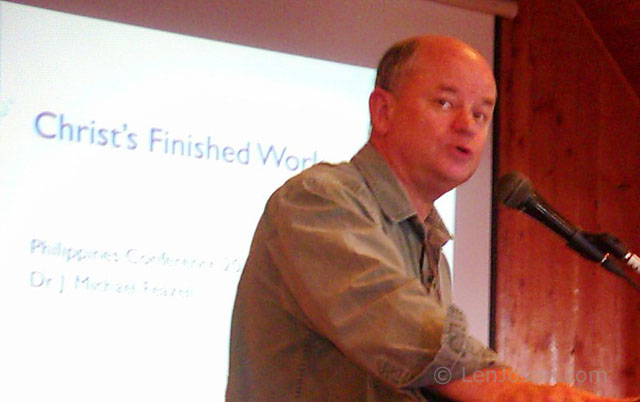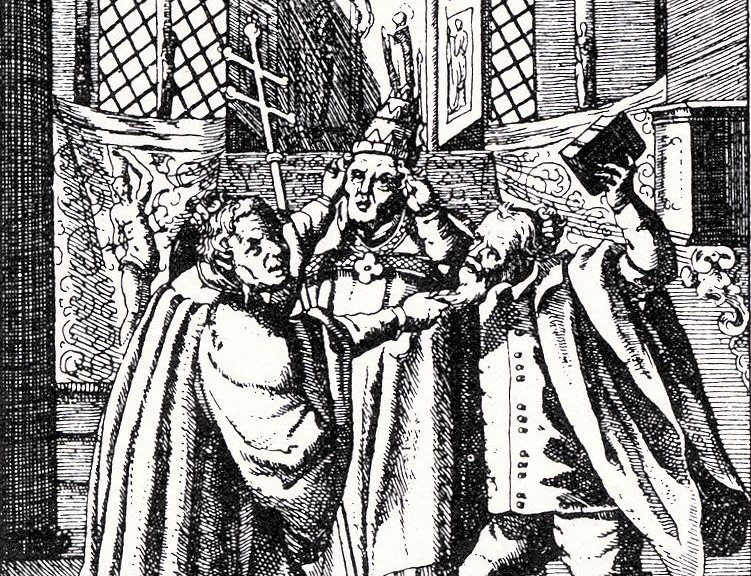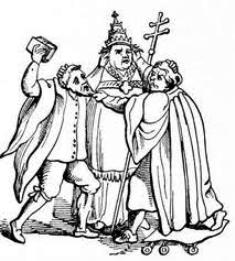A lot of discussions have been going on at Facebook regarding Steve McVey’s article on “Do We Proclaim a Potential Gospel or a Finished Gospel?” According to Steve McVey, he used to preach that when a person believes in Jesus Christ, then and only then will he receive forgiveness and get reconciled to God. In other words, reconciliation only becomes a reality when one believes the gospel. The person’s action (belief) creates reality (reconciliation). This is what Steve McVey called the “potential gospel.”
Years later, he learned that actually, the good news is that the work of Christ is already a finished work. Christ said on the cross, “It is finished.” Thus, Steve McVey called it the “finished gospel.” He realized he made a mistake in preaching a “potential gospel.”
Dr. Mike Feazell and GCI
When I attended a conference in Tagaytay last February 2010, Dr. Michael Feazell, the vice-president of Grace Communion International, was there himself explaining what Trinitarian theology was all about. And the main title of his message was, “Christ’s Finished Work.” He explained to us that Christ’s work is a finished work.
C. S. Lewis
It is interesting to note that even the famous writer, C.S. Lewis believed in the finished work of Christ:
“What, then, is the difference which He has made to the whole human mass? It is just this; that the business of becoming a son of God, of being turned from a created thing into a begotten thing, of passing over from the temporary biological life into timeless ‘spiritual’ life, has been done for us. Humanity is already ‘saved’ in principle. We individuals have to appropriate that salvation. But the really tough work–the bit we could not have done for ourselves–has been done for us. We have not got to try to climb up into spiritual life by our own efforts; it has already come down into the human race. If we will only lay ourselves open to the one Man in whom it was fully present, and who, in spite of being God, is also a real man, He will do it in us and for us. Remember what I said about ‘good infection.’ One of our own race has this new life: if we get close to Him we shall catch it from Him.” (Mere Christianity, C. S. Lewis, pp. 156-157)
“It is Finished”
“It is finished,” as Christ said on the cross. In so far as God is concerned, from God’s point of view, we have already been reconciled to God through Christ (2 Cor. 5:18-19) and there’s nothing more that’s needed for us to do to earn salvation. Christ earned it for us. That’s the objective truth and reality. It is already real and true.
Our personal response to this objective truth is a subjective matter and experience which does not create reality. Our reconciliation in Jesus Christ is not potentially true and will only become a reality when we believe. It is already true. God through Paul said so in 2 Corinthians 5:18-19. We have already been reconciled. It’s already a reality. In view of this objective reality, we are urged to “be reconciled to God” (2 Cor. 5:20) as our fitting, rightful and positive response.
In view of God’s love that is given to us, we cannot but respond in love and with love in return. Let us respond positively and enjoy life and love with the Father, Son and Holy Spirit.
Photo credit: Google






